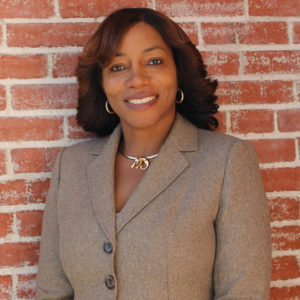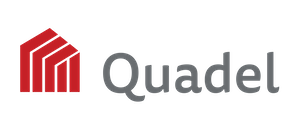
Tennessee Quadel’s Managing Director, Cheiktha Dowers, keeps her staff motivated even during the COVID-19 pandemic.
One of the most common challenges housing authority directors face is to ensure staff stay motivated, meet deadlines and accomplish everyday tasks. Motivating staff through a global pandemic can bring this challenge to a completely new level.
Tennessee Quadel’s (TNQ) Managing Director, Cheiktha Dowers, has directed the management and operations of Memphis Housing Authority’s High Performer HCV program since 2012. Affectionately nicknamed “Ms. D” by her employees, Dowers prides herself on her family-like office atmosphere and low staff turnover. She offers a few tips to fellow directors and managers on how to keep motivation high during such an uncertain time.
Have Regular Staff Meetings
Dowers has been in the affordable housing industry since 1997 and has worked at multiple public housing authorities or organizations. Each housing authority tended to have the same problems with staff: boredom and burnout. To make sure she has a pulse on her employees, Dowers schedules a staff meeting at least two to three times a month.
“One of the things that is important to me is that I meet with my staff every week. At least two-three times a month, I have a staff meeting that allows me to connect with them and say ‘Hey, what’s going on? What’s impacting you?’ so we can keep our quality level up to the highest standards because if our quality slips, we (may not) achieve SEMAP High Performer. Even if we didn’t have anything major to talk about, it is an opportunity to bring everyone together.”
Dowers also said that regular staff meetings help curtail the everyday routine and help staff members feel less isolated. Currently, staff members are divided into Team A and Team B and rotate in-office shifts to make sure operations continue smoothly and correctly while adhering to all CDC-recommended safety protocols.
Create a Rapport with your Employees
Dowers wholeheartedly believes her “open door policy” with her staff members has led to less staff turnover and more employee satisfaction. Dowers keeps her office door open so employees can approach at any time with questions or concerns.
“If you have an open door policy with your staff, they will come to you before (they look to others) because they are comfortable talking with you. I look at my staff as more like family. I want them to feel like I am there with them – that I will get down in the trenches with them. Most of the time, I try to resolve our issues internally so they feel like they can trust me. I think I have gained the trust of our team so when major things come down the pipeline, I can say ‘this is going to happen,’ they trust what I say to be true. Making them feel like they are part of the TNQ family – making them feel like a family unit is important – has really helped me be able to retain employees.”
Utilize Technology to Ease Employee Burden and Increase Safety During COVID-19
Dowers recommends any housing authority operating amid COVID explore the option of implementing online systems to help complete re-certifications or inspections or answer questions from program participants and applicants. To determine what the Memphis Housing Authority needed to ensure program operations continued while ensuring employee safety, she completed an internal assessment to determine current levels of technology and staff capacity.
“Implementing online systems provides families safety and flexibility and allows requests to be processed in a timely manner, especially amid COVID. Having the online portals (helps so much.) Families can upload their information to us, and we can continue to process it. They can also call and email to follow up on anything. You want to make sure you have technology tools in place to respond to client needs. As many things as we could take to the online platform, we did just that.”
One of the first systems Dowers put in place was DocuSign, an electronic signature system that allows landlords to sign HAP contracts. In partnership with MHA leadership, Quadel also developed and implemented an online briefing for new participants.
Never Underestimate the Power of Team Building
Prior to the COVID-19 pandemic, TNQ staff members brought in favorite dishes and enjoyed a potluck lunch once a month. While no potlucks will be happening any time soon, Dowers got creative to ensure the important “family” aspect of the office continued even with the telework schedule of her employees.
“Even though staff are at home, we have zoom meetings during coffee times and provide a community time to catch up. I’m always sending them motivational articles, too. I know it’s hard, but we have to keep moving. I let them know that we’ve got this. We are a team.”
As Dowers continues to lead her staff through the uncertainty and the possibilities of a new year, her biggest focus right now is to make sure her staff stays safe through the implementation of policies and procedures adapted for this new way of service delivery.
Dowers is diligent to balance program performance and compliance with employee safety and satisfaction. Maintaining this balance ensures employees stay motivated and MHA maintains its High Performer status.
